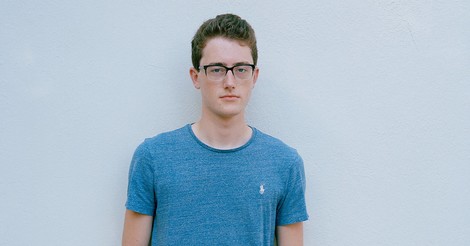Your podcast discovery platform
Curious minds select the most fascinating podcasts from around the world. Discover hand-piqd audio recommendations on your favorite topics.

piqer for: piqd Boom and bust Climate and Environment Global finds Globalization and politics Health and Sanity Technology and society Doing Good Deep Dives
Malia Politzer is the executive editor of piqd.com, and an award-winning long-form journalist based out of Spain. She specializes in reporting on migration, international development, human rights issues and investigative reporting.
Originally from California, she's lived in China, Spain, Mexico and India, and reported from various countries in Africa, Europe and the Middle East. Her primary beats relate to immigration, economics and international development. She has published articles in Huffington Post Highline, The Economist, The Wall Street Journal, Vogue India, Mint, Far Eastern Economic Review, Foreign Policy, Reason Magazine, and the Phoenix New Times. She is also a regular contributor to Devex.
Her Huffington Post Highline series, "The 21st Century Gold Rush" won awards from the National Association of Magazine Editors, Overseas Press Club, and American Society of Newspaper Editors. She's also won multiple awards for feature writing in India and the United States.
Her reporting has been supported by the Pulitzer Center on Crisis Reporting, The Institute For Current World Affairs, and the Global Migration Grant.
Degrees include a BA from Hampshire College and MS from Columbia University Graduate School of Journalism, where was a Stabile Fellow at the Center for Investigative Journalism.
Why More American Teens Than Ever Are Suffering From Anxiety
This New York Times Magazine longread delves into the anxiety epidemic facing American teenagers; and while it may seem counter-intuitive, it seems that more affluent teens (who at first glance seem to have opportunities handed to them on a silver platter) are even more likely to suffer from various forms of acute anxiety.
Just from one year to the next (2010-2011) the American College Health Association found an increase from 50 per cent to 62 per cent among undergraduates who reported feeling an "overwhelming anxiety" over the previous year. In 1985, just 18 per cent of incoming Freshmen at UCLA reported that they felt "overwhelmed" by all they had to do; by 2010 that number had risen to 29 per cent. Last year, it surged to 41 per cent.
This upsurge in numbers begs the question: Why? The answers that journalist Benoit Dinezet-Lewis's reporting uncovers seem deceptively simple at first glance, but in reality they are quite complex. Social media plays a primary role: The more teens are engaged in the competitive comparison game generated by the airbrushed social media profiles of their peers, the more likely anxiety is to take root. But other issues – parents' anxiety over their children getting ahead in school, helicopter parenting, and students' own internalized perfectionism – also play primary roles.
What I liked about this article is how it gave equal weight to both the roots of the challenge facing teens, as well as to potential solutions. Well worth a read.
